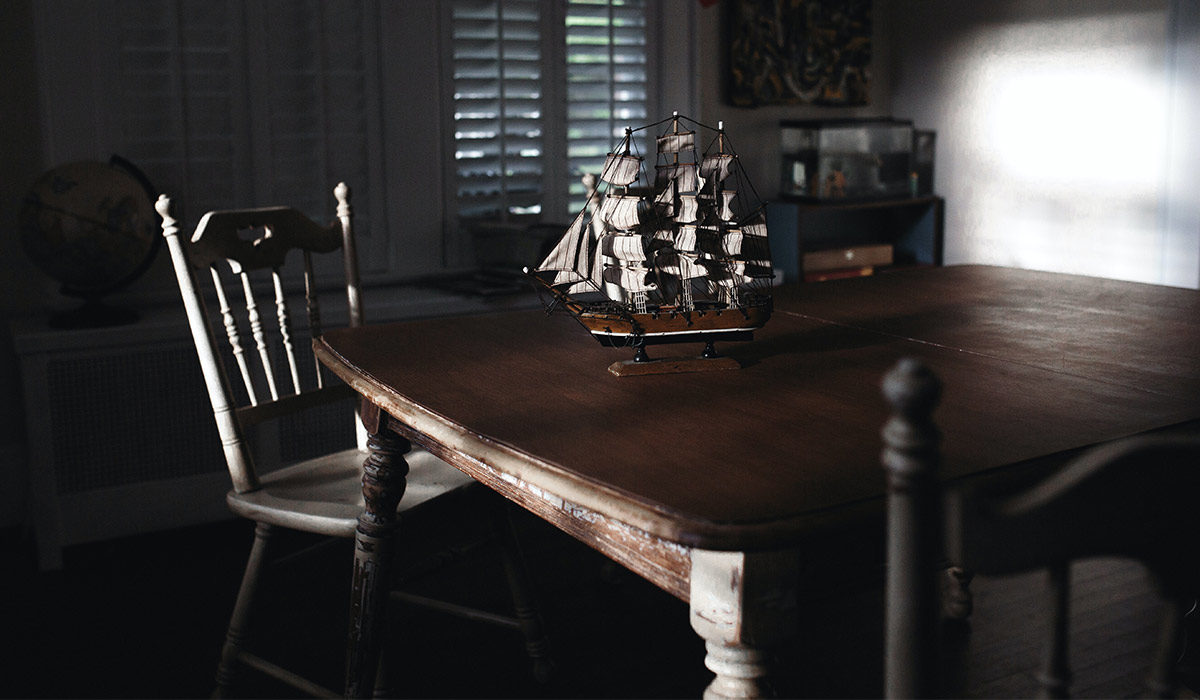A Bitter Reminder

I was ten years old when I traveled with my mother, brother, and grandparents to Throckmorton, Texas, to spend a few days with my mother’s grandparents. We drove for three days from Ohio and stopped at tourist places along the way. Carlsbad Caverns astounded me. It was as if the “bigness” of the world was beginning to come alive as I experienced the cool dripping water in the dark cave and its “otherworldly” wonders of stalactites and stalagmites. It was holy and scary at the same time.
I recall almost next to nothing about the time with my great-grandparents, Mama and Papa Gordon. I do, however, remember one meal. My mother and grandmother were unusually rested, and I felt wooed into the relaxed atmosphere even though only the adults were talking. This noonday meal seemed to last forever. In my mind, I can still see the table set with countless glass serving dishes filled with pickles, tomatoes, applesauce, and other “homemade” delicacies unlike the lunches that I was used to.
After we had eaten homemade pie, Papa Gordon leaned towards me from across the table and said, “You Yankee! I can’t believe I have Yankee great-granddaughter!” His bitter tone startled me! People laughed, but I didn’t. The energy that came from this weathered, thin, tough Texan rancher did not feel safe. Plus, I had no idea what a Yankee was! I suspect that he must have laughed then, but I am not sure. If he hadn’t laughed, surely, I would have begun to cry since his tone scared me. I like to think that I leaned towards him and said, “What’s a Yankee?” But if I consider how voiceless I was in my family, I know I turned inward and shut down with shame.
This past July, The New York Times had a Sunday section featuring the descendants of Confederate war heroes in response to the tumult that was ravaging the South with taking down Civil War monuments. The great-great-granddaughter of General John Brown Gordon was quoted saying she was happy to not have any reminders of her great-great-grandfather’s involvement in the Civil War. In fact, all the people interviewed for this Sunday section said that our country did not need these statues because the country, and they themselves, had moved on. It was time for everyone to let go of bitterness and move on.
General John B. Gordon was my great-grandfather’s uncle. I know that Papa Gordon venerated his uncle and believed what he did to defend a seceded renegade nation was “right and good.” He was wrong. His “side” was defeated, and he was enraged and ashamed. And I was the bitter end of his unrepentant rebellion.
I used to be proud to be a Yankee and was in awe of knowing which houses in our area were stops on the Underground Railroad. I was fooled that prejudice and racism was a southern phenomenon and relatively infrequent in the North. I long ago gave up thinking that Northerners treated Blacks better than Southerners. I am no longer naïve about geographical borders.
I now understand how every history book or movie I saw about the Civil War always had this sentence: “Brother was divided against brother. The war divided families with sons fighting on different sides of the issue of slavery.”
What if the tender work of God regarding racism had been active in my family?
Possibly my great-grandfather would have leaned forward across the dining room table and asked to hold my hands, and then said, with no bitterness, “I grieve that my uncle led a rebellion based on cruelty and violence against an entire race of people. You are a reminder that there is still much work to do to see honor and righteousness grow in my heart and in our nation.”
“Bitter end” is a nautical term. It is a part of an anchor line that indicates the rode can’t go any further. It tells the sailor if she has enough line to achieve sufficient scope. If you are in ten feet of water, it is best to have a seven-to-one relationship between depth and how much line is out, or seventy feet. The bitter end is a measure that allows the sailor to know whether she can set anchor here or if she needs to move closer to shore.
I don’t want to be the source of my great-grandfather’s bitterness. I am, however, a bitter end reminder with regard to Confederate statutes, unaddressed racism, and narcissistic leaders that we have to move closer to shore.
